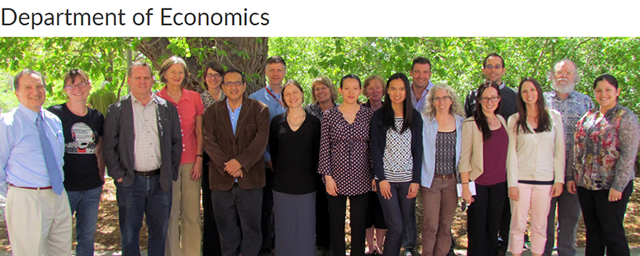
Economics ETDs
Publication Date
6-24-2010
Abstract
This research juxtaposes empirical approaches to analyze the relationship between fertility and economic development. Using household survey data from Brazil in the mid 1990s, separate Ordinary Least Squares (OLS) models are run that comparatively evaluate the explanatory power of divergent methods used to explain fertility in developing countries. Rational choice approaches, in the spirit of Gary S. Becker, are presented alongside approaches that account for heterogeneous socio-cultural traits to see which method explains more about family size in Brazil. The paper finds evidence to support the relevance of both the rational choice and the socio-cultural approaches to fertility studies. The research ultimately presents evidence that socio-cultural models generate relatively more explanatory power in the fertility analysis of Brazil than methods adopting the strict axioms of rational choice models from the Becker-era.
Degree Name
Economics
Level of Degree
Masters
Department Name
Department of Economics
First Committee Member (Chair)
Thacher, Jennifer
Language
English
Keywords
Fertility, Development, Culture, Becker, Heterodox, Survey
Document Type
Thesis
Recommended Citation
Delfino, Daniel. "A Juxtaposition of rational choice and socio-cultural approaches to explain changes in family size throughout the process of economic development using household survey data from Brazil." (2010). https://digitalrepository.unm.edu/econ_etds/39
